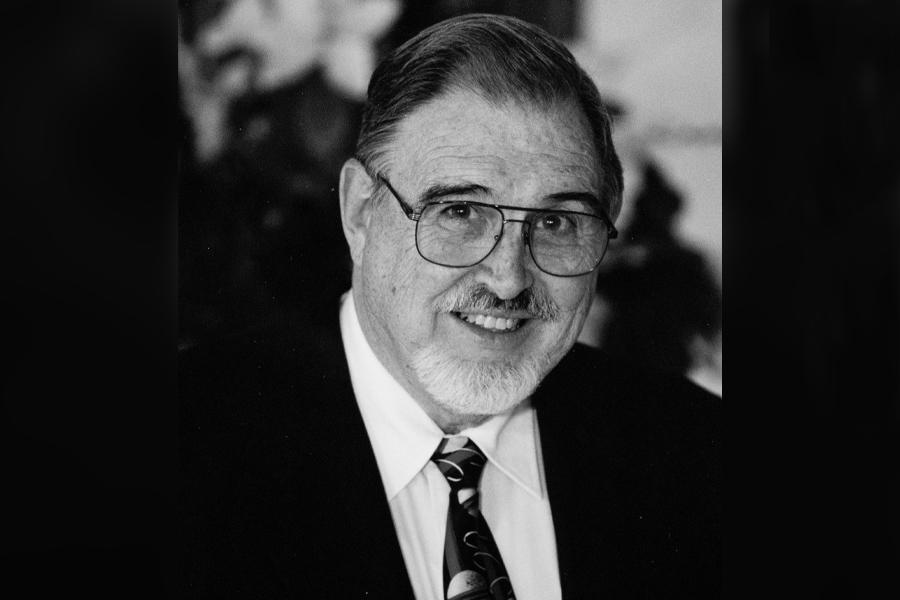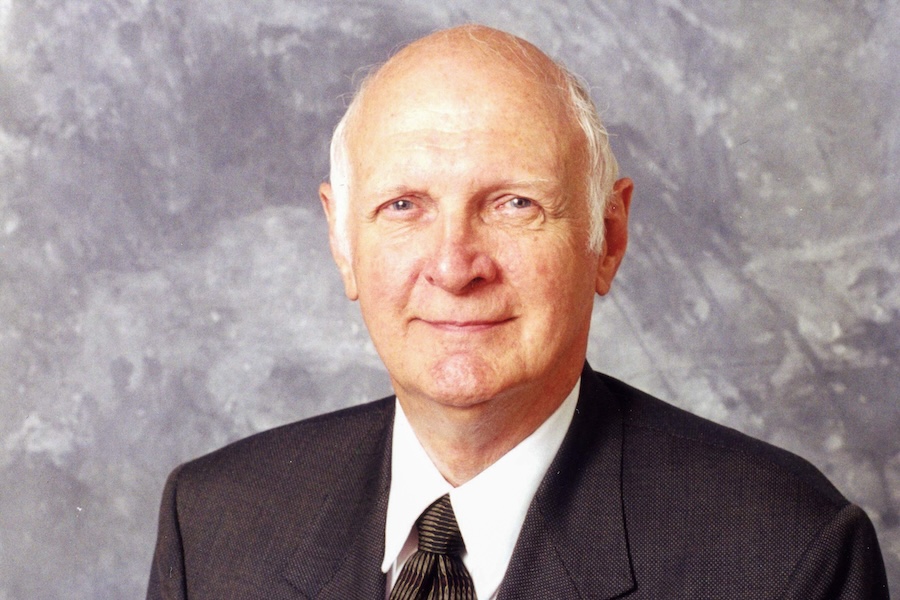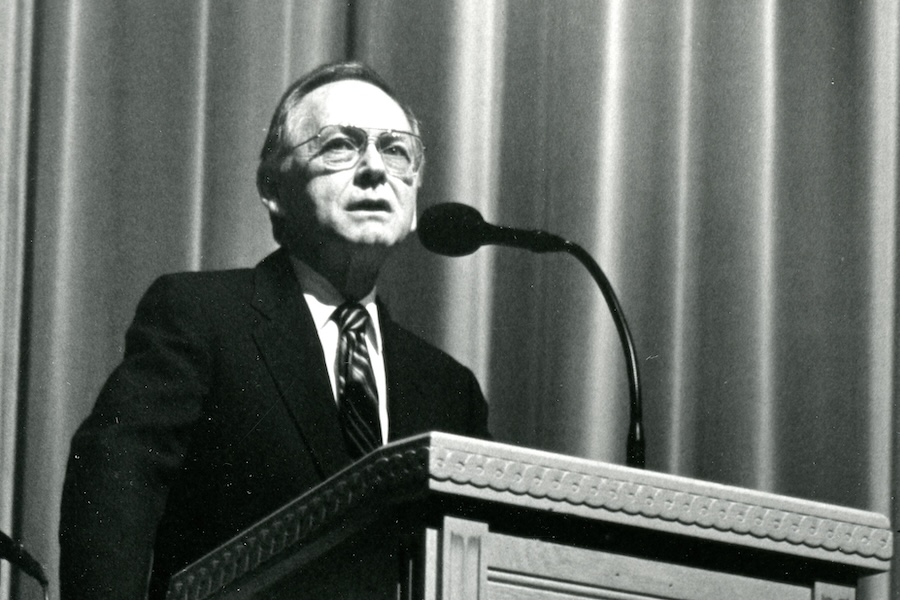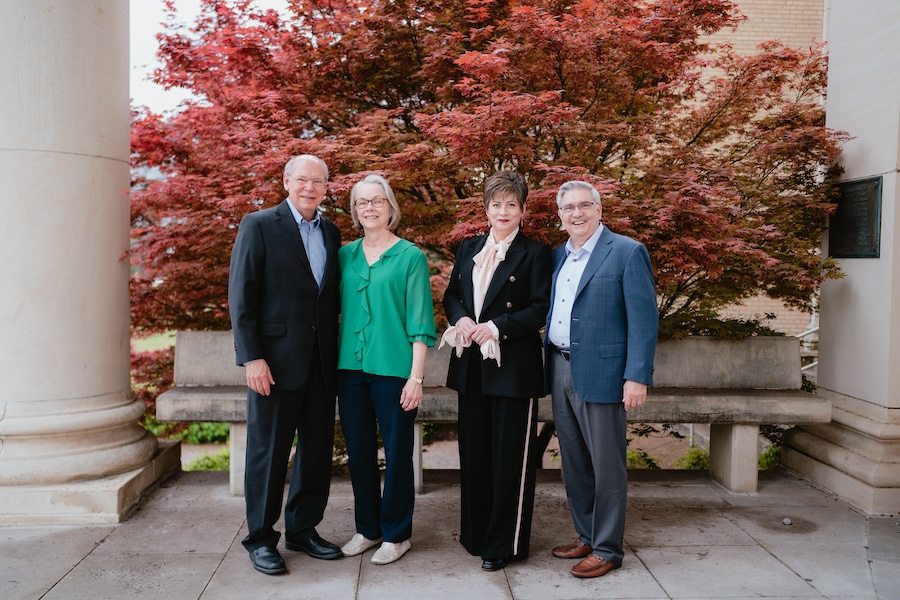‘Savor the longsuffering of God,’ McKellar preaches
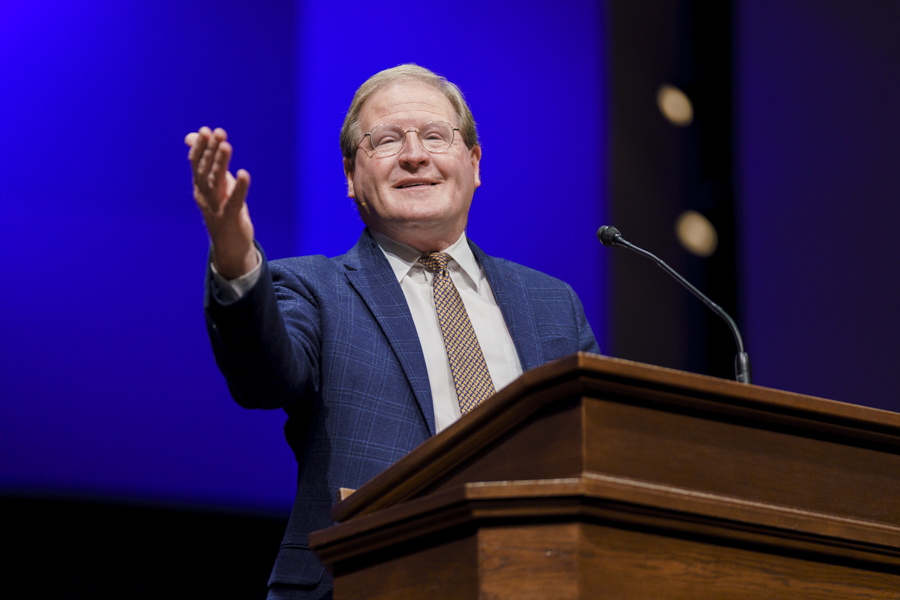
The story of Gideon in Judges 6 centrally features a God who is patient, merciful, and gracious with His people, said Matthew McKellar, professor of preaching, during his chapel sermon at Southwestern Baptist Theological Seminary, April 7.
“I am going to submit to you this morning that the hero in Judges 6 is not Gideon,” McKellar said in his opening remarks. “Gideon is God’s tool. Gideon is God’s instrument. The hero in Judges 6 is Yahweh.”
McKellar explained that it is because of God’s longsuffering in the story that He is ultimately the hero. He described the different “scenes” of Judges 6, and how the reader can see evidence of God’s character and “essence.”
The passage, McKellar said, tells of a continued cycle of rebellion among the Israelites, a “prophetic explanation” of their actions along with a reminder of God’s requirements for them in worship and obedience, and, finally, the demand of idol removal and the assurance of God’s presence.
“What the biblical author is doing here is showing us how condescendingly gracious and kind and wonderful is the God who, when He has every right to destroy us, is patient with us like a child,” McKellar said. “… [W]hat is happening here in this text is we are getting a picture of the stooping down, condescending love of the almighty God.”
In response to God as the “faithful deliverer,” McKellar concluded that believers must “savor the longsuffering of God,” and then identify and discard any of their own existing idols to truly experience God’s presence.
“There’s some backyard Baals that need to go so that we might be laser-focused on the call of God and the accomplishment in His power of the Great Commission,” McKellar said.
The ultimate application of the text, McKellar continued, is found in identifying and knowing the character of God.
“Gideon was great, but I think you see who the hero of the story is,” McKellar said. “Look to the One who is greater than Gideon.”
Gideon, McKellar further explained, points to Jesus as the ultimate deliverer.
“Jesus is not a fumbling, faulting farmer,” McKellar said, in contrast to Gideon. “He’s the faithful Lord of the universe. He’s not a regional deity; He’s the Lord of time and eternity, and He is the sole focus of saving faith, … and every tongue will confess that He is Lord, to the glory of God the Father.”
Such knowledge and recognition should prompt one to worship God with joy and gladness, McKellar said.
Upon opening the Word of God and approaching the text with an eagerness to learn more about His character, McKellar said readers will realize that the God encountered in that story is the same God they can encounter today.
“He is the God who has orchestrated that next Gospel conversation,” McKellar said. “He’s the God we meet in the text, and because of that, we have this hope. We don’t have to worry about our own adequacy. We can all just agree we are inadequate. But He is completely adequate, and because He is, we are all miracles of mercy.”
